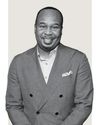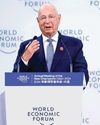
Admission is granted via a big iron gate that swings silently open to a crunchy driveway, a small turreted gatehouse, a pond with geese, hedgerows, wordless men with wheelbarrows and Wellingtons and, after a little walking, a three-story red-brick Georgian compound. From the outside it has the stately but understated air commonly associated with English gentry. One of the property’s chief treasures is a really old oak tree.
This is not the Elton John most people know. That guy is loud. The glasses, the outfits, the sexuality, the concerts, the retail expenditure, the platform heels, the temper, the parties, and most of all the piano—all set permanently at fortissimo. John has been in showbiz for 60 years, and for 50 of those he has been a front man, inordinately and excessively famous. His triumphs, mistakes, strengths, weaknesses, wigs, and duck costumes have been in full and permanent plumage. The wealth and passions he became known for have not been those associated with aristocracy: they leaned more toward shopping than Chopin.
But these days the comparison to an English noble feels weirdly apt. John’s married with two heirs. His philanthropic work is much admired. Some of his possessions—a selection from his impressive photograph collection—are currently on display at one of London’s most highly regarded art institutions, the Victoria and Albert Museum. His library is full of trophies that attest to his prowess, an Emmy and multiple other awards crowded together on a small table with some ancient sculpture fragments. He has literally been knighted. From his garden, the current King’s grandmother once remarked, you get a good view of the British monarchy’s ancestral home.
This story is from the December 30, 2024 edition of Time.
Start your 7-day Magzter GOLD free trial to access thousands of curated premium stories, and 9,000+ magazines and newspapers.
Already a subscriber ? Sign In
This story is from the December 30, 2024 edition of Time.
Start your 7-day Magzter GOLD free trial to access thousands of curated premium stories, and 9,000+ magazines and newspapers.
Already a subscriber? Sign In

Q & A: Borge Brende
The World Economic Forum president talks with TIME editor Sam Jacobs

Q & A - Rene Haas
Arm's CEO on how his hardware is supporting the Fourth Industrial Revolution

The conflicts looming over 2025
WHEN DONALD TRUMP TOOK THE OATH OF OFFICE AS President in January 2017, his first foreign policy priority was to get tough on China. The Trump 2.0 Administration will continue that work. But when he strides back into the Oval Office in January 2025, Trump will also become responsible for U.S. management of two dangerous wars, the kinds of hot foreign policy crises he was fortunate to avoid during his first term.

Rev Lebaredian
Nvidia's vice president of Omniverse and simulation technology on training AI-powered robots

5 predictions for AI in 2025
New uses and policy questions come into focus

Roy Wood Jr. The comedian on his new stand-up special, the importance of working in food service, and learning from Keanu Reeves
8 QUESTIONS WITH Roy Wood Jr.

A call for global cooperation in the Intelligent Age
Cultivate wisdom along with innovation

The D.C. Brief
IN THE END, THE THREAT OF A FARright revolt proved more menacing than most imagined, as Republican Mike Johnson initially came up short on Jan. 3 during the first balloting to keep him as Speaker.

The digital labor revolution
OVER THE PAST TWO YEARS, WE'VE WITNESSED advances in AI that have captured our imaginations with unprecedented capabilities in language and ingenuity. And yet, as impressive as these developments have been, they're only the opening act. We are now entering a new era of autonomous AI agents that take action on their own and augment the work of humans. This isn't just an evolution of technology. It's a revolution that will fundamentally redefine how humans work, live, and connect with one another from this point forward.

Tech we can trust
Serving humanity's best interests must be at the center of progress